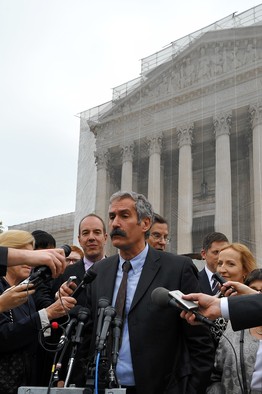Patent Not Pending: Alum’s Suit Paves Way for Cheaper Genetic Testing
-
-
slice.mit.edu
Filed Under
Recommended
The ruling came as good news for those afflicted with breast and ovarian cancer, who will likely have better access to genetic testing techniques in the years ahead.

It was also good news for Dr. Harry Ostrer '72, one of the case’s plaintiffs. Ostrer is a professor of pediatrics, pathology and genetics at the Albert Einstein College of Medicine in New York. He has long advocated for fair access to genetic information and testing, some of which has emerged from his own lab, where he works on finding risk-factors for diseases before they spread.
Ostrer’s case was against Myriad Genetics, a Utah company that had filed patents for the discovery of two genes that often reveal the development of breast and ovarian cancer.
The Supreme Court ruled, however, that Myriad’s patent was based on false grounds, since they did not actually invent anything. The decision was unanimous.
Justice Clarence Thomas wrote the opinion. “A naturally occurring DNA segment is a product of nature and not patent eligible merely because it has been isolated,” he wrote. “It is undisputed that Myriad did not create or alter any of the genetic information” in its work.
“Groundbreaking, innovative or even brilliant discovery does not by itself satisfy the criteria” to patent something, the decision stated.
Ostrer was thrilled.
"This decision should have an immediate impact on the genetics market. It will improve the quality of genetic testing, and costs should come down considerably,” he said.
The precedents set by the case do not affect discoveries and patents related to synthetic DNA. Still, Association for Molecular Pathology v. Myriad Genetics could potentially affect and invalidate thousands of other patent applications for discoveries of genes.







